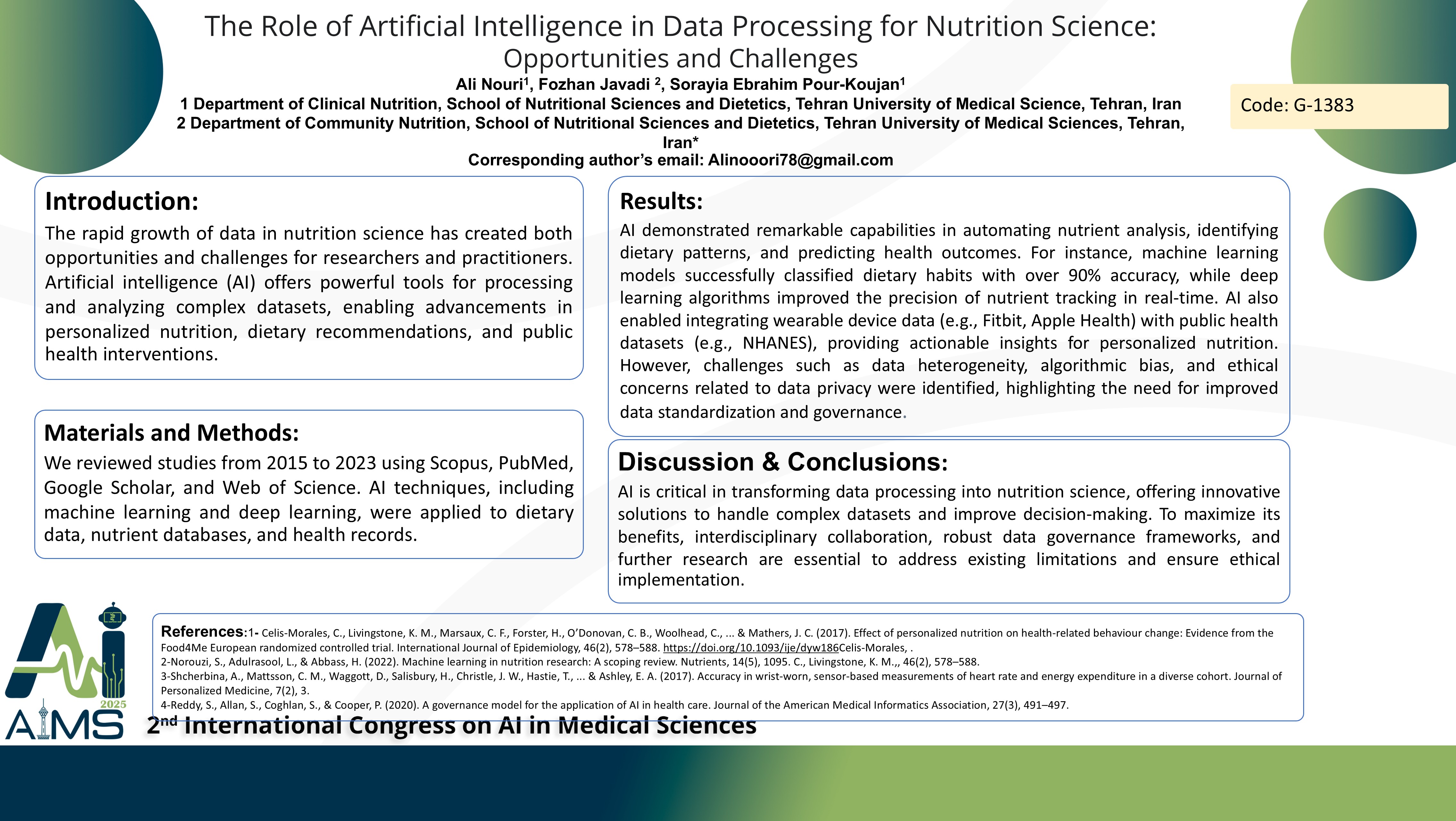نقش هوش مصنوعی در پردازش داده ها برای علوم تغذیه: فرصت ها و چالش ها
کد: G-1383
نویسندگان: Ali Nouri * ℗, فوژان جوادی, ثریا ابراهیم پور کوجان
زمان بندی: زمان بندی نشده!
برچسب: سیستم های تصمیم یار بالینی
دانلود: دانلود پوستر
خلاصه مقاله:
خلاصه مقاله
Introduction: The rapid growth of data in nutrition science has created both opportunities and challenges for researchers and practitioners. Artificial intelligence (AI) offers powerful tools for processing and analyzing complex datasets, enabling advancements in personalized nutrition, dietary recommendations, and public health interventions. Methods: We reviewed studies from 2015 to 2023 using Scopus, PubMed, Google Scholar, and Web of Science. AI techniques, including machine learning and deep learning, were applied to dietary data, nutrient databases, and health records. Results: AI demonstrated remarkable capabilities in automating nutrient analysis, identifying dietary patterns, and predicting health outcomes. For instance, machine learning models successfully classified dietary habits with over 90% accuracy, while deep learning algorithms improved the precision of nutrient tracking in real-time. AI also enabled the integration of wearable device data (e.g., Fitbit, Apple Health) with public health datasets (e.g., NHANES), providing actionable insights for personalized nutrition. However, challenges such as data heterogeneity, algorithmic bias, and ethical concerns related to data privacy were identified, highlighting the need for improved data standardization and governance. Conclusion: AI is critical in transforming data processing into nutrition science, offering innovative solutions to handle complex datasets and improve decision-making. To maximize its benefits, interdisciplinary collaboration, robust data governance frameworks, and further research are essential to address existing limitations and ensure ethical implementation.
کلمات کلیدی
Artificial Intelligence, Data Processing, Nutrition Science
